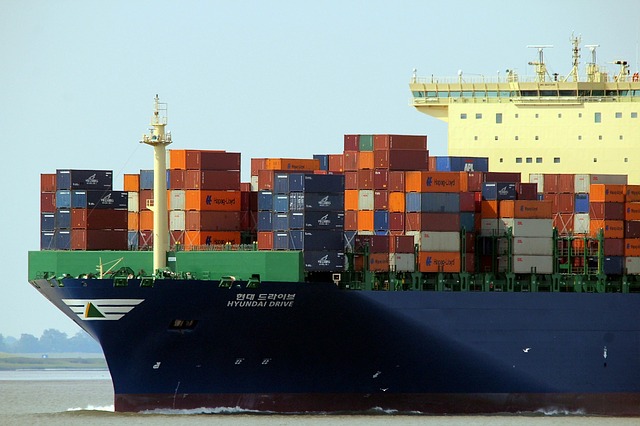WSi News2019-03-11 16:18:05
Cargo industry director for Unisys Asia Pacific, calls to the global cargo industry to make three fundamental changes to modernize cargo management while increasing security of customer data and shipments by creating a “connect supply chain”
Real-time data is fundamental to a connected cargo supply chain to reduce idle time and increase visibility, transparency and security, Unisys to tell global cargo leaders.
Unisys has announced it will present at the 13th IATA World Cargo Symposium, 12-14 March in Singapore, and discuss some of the key challenges and opportunities within the cargo and freight industry. Niranjan Navaratnarajah, cargo industry director for Unisys Asia Pacific, will join a panel within the Cargo Transformation Track to discuss the need to securely modernise today’s mostly manual and fragmented cargo distribution processes by moving away from traditional phone and paper procedures.
“The cargo industry must modernise to reduce shipment idle time to improve the customer experience, optimise asset utilisation, improve security and reduce unnecessary storage costs. To do this, the entire cargo industry should adopt centralised datasets, that are updated in real-time using mobile devices, automation and Internet of Things (IoT) to hasten processes and allow buyers and sellers to access up to date and accurate information. This ‘connected cargo supply chain’ offers customers greater visibility, certainty and satisfaction,” says Mr Navaratnarajah.
Navaratnarajah cites three changes required to create a connected cargo supply chain:
1) Use centralised datasets – The cargo supply chain is complex with many entities involved in a delivery including booking agents, airlines, customs, freight forwarders, and road/rail transport. Each uses separate forms (often paper) and manual processes (such as phone calls) – creating out-of-date data, inaccuracies, opportunities for fraud and hindering end-to-end tracking. Buyers and sellers must move their business to online ecommerce platforms – which can be their own in-house platform or one that spans a community of forwarders, airlines, general sales agents and handlers, such as Unisys Digi-Portal. Such real-time platforms enable buyers to interact with automated real-time inventory and not rely on stored data. In addition, growth in consumer online purchases has not only increased small parcel deliveries, it has created an expectation that customers can easily track their deliveries. Real-time data, used across the supply chain, enables greater visibility and traceability of shipments. With 60.8 percent penetration of e-AWB in the cargo globally1, the industry is well poised to move to centralised e-AWB based centralised datasets in the next 12-18 months. And as 8 of the top 10 countries of origin for e-AWBs are in Asia, and five of the six top airports of origin are Asian, we can expect this region, the ‘world’s manufacturing bowl’, will lead the way.
2) Capture real-time data by securely integrating mobility, IoT and data automation to make updates on the spot and exchange information faster to reduce the time that cargo is left on the ground. Asian cargo markets compete against each other to be seen as easy do business with. Yet only Japan, Singapore and Hong Kong/China rank in the top 20 of The World Bank’s Logistics Performance Index2. Reducing costly shipment idle time is key. Unisys estimates that on average cargo is in the air only 15 percent of the total delivery time – for the remainder it is on the ground. The industry should aim to cut idle time to around 50 percent. In a secure connected cargo supply chain, information flows automatically and mobile devices, wearables, sensors and drones enable staff to process shipments on the spot updating data in real-time; weigh bridges automatically exchange data with systems preventing data errors and fraud; and IoT enabled sensors on shipments proactively alert cargo systems and staff if a shipment has been left behind, in the wrong location, or is distressed. Some players are already doing this, but an industry-wide approach is needed to transform the whole supply chain.
3) Use AI and predictive analytics for improved visibility, efficiency and security – More accessible and accurate cargo records also assist to manage, process and track cargo, particularly sensitive items like medicine or food which must be stored at certain temperatures. Artificial intelligence powered by predictive analytics can help freight forwarders to ingest and analyse data in real-time, helping to determine if sensitive shipments require specific attention or if the shipping conditions need to be modified. Predictive analytics can also generate data to enable airlines to better plan their routes, avoid inclement weather and validate the security of shipments. This real-time visibility into shipments also assists to locate misplaced items, which can greatly impact the customer experience. Integrated with such targeting tools, the connected cargo approach would improve the clearance and tracking of shipments from loading to arrival. Finally, moving to a digital data-based cargo supply chain enables the integration of advanced security information and event management (SIEM) tools, such as the Unisys Stealth® platform with automated Dynamic Isolation, to protect customer information and shipment data from being accessed or modified by unauthorised parties, preventing data theft and cargo fraud.
For more information contact:
